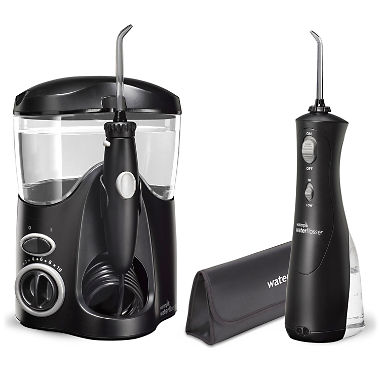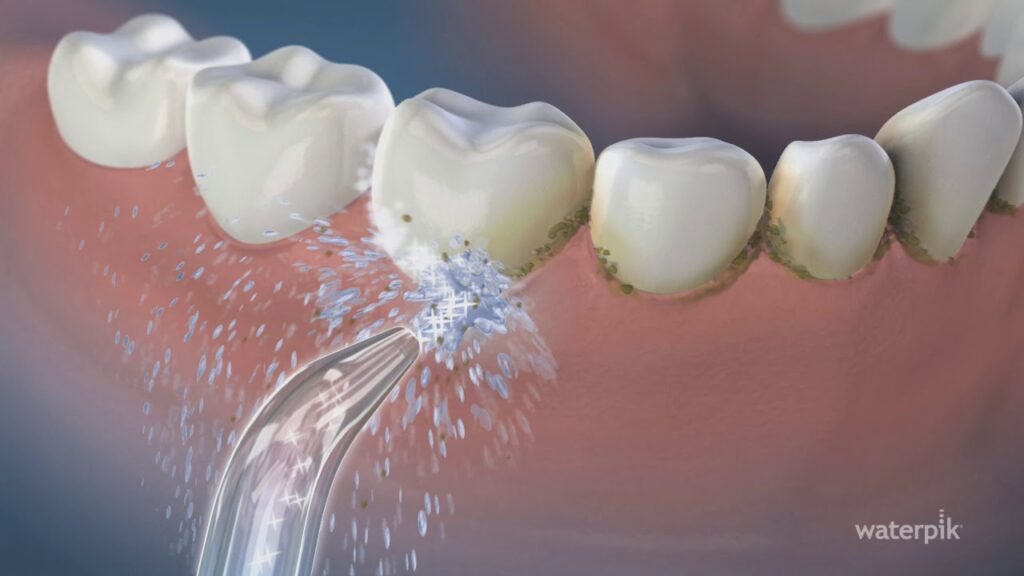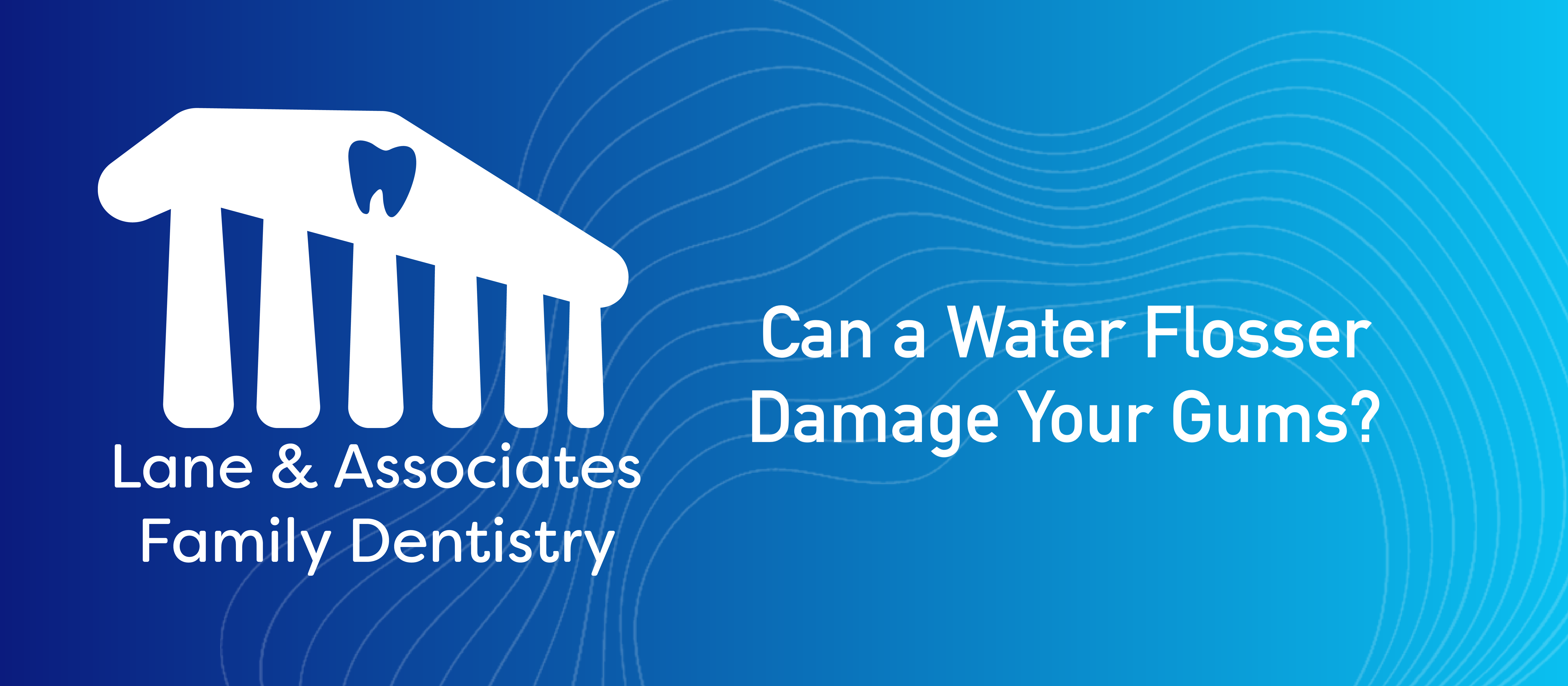
Water flossers, also known as oral irrigators, have become a popular tool in modern oral hygiene routines. These devices use a targeted stream of water to clean between teeth and along the gumline, offering an alternative to traditional string floss. While many people praise their effectiveness, a common question arises: can a water flosser actually damage your gums? The short answer is that when used correctly, they are a safe and valuable tool. However, improper use can lead to irritation.
This guide will explore the benefits of water flossing, explain how to use these devices properly, and provide tips to ensure your gums stay healthy.
How Do Water Flossers Work?
A water flosser directs a steady, pulsating stream of water into the mouth to dislodge food particles, bacteria, and plaque from areas that toothbrushes and traditional floss can sometimes miss. Most models come with adjustable pressure settings, which allows you to customize the intensity for your comfort and specific oral health needs. When integrated into a daily oral care routine, water flossers are highly effective at promoting cleaner teeth and healthier gums.
The Benefits of Using a Water Flosser
Water flossers provide several key advantages for maintaining your oral health. The American Dental Association (ADA) recognizes that interdental cleaning is crucial for managing gingivitis and removing plaque. Oral irrigators are one of several effective devices for this purpose.
- Improved Gum Health: The ADA has awarded the Seal of Acceptance to products like Waterpik Water Flossers, noting their efficacy in removing plaque along the gumline and helping to prevent or reduce gingivitis.
- Ease of Use: Many people find water flossers easier to handle than traditional floss, especially those with braces, dental implants, bridges, or dexterity challenges.
- Gentle Yet Effective Cleaning: The stream of water can be less abrasive than string floss, offering a comfortable cleaning experience for individuals with sensitive gums.
Can a Water Flosser Harm Your Gums?

The concern that a water flosser could harm your gums is primarily linked to incorrect use. Using a pressure setting that is too high can irritate or damage delicate gum tissue, especially if you have pre-existing sensitivity or gum inflammation. It is also important to remember that a water flosser is a component of a complete oral hygiene routine, which should always include brushing twice a day and regular professional cleanings.
Tips to Avoid Gum Damage
By following a few simple guidelines, you can safely incorporate a water flosser into your routine and maximize its benefits.
- Start with Low Pressure: Begin on the lowest pressure setting and gradually increase it to a level that feels effective yet comfortable.
- Use the Proper Technique: Aim the flosser tip at the gumline at a 90-degree angle. Pause briefly between each tooth, allowing the water to clean the front and back. Avoid aiming the stream directly into the gum pockets.
- Limit Your Flossing Time: A thorough cleaning with a water flosser typically takes about one to two minutes. Overuse is unnecessary and could lead to sensitivity.
- Follow Safety Warnings: The ADA notes specific warnings for oral irrigators, such as not directing water under the tongue or into other delicate areas, as the pressure can cause damage.
Daily Use and Sharing: What’s Safe?
For most people, daily use of a water flosser is both safe and recommended to maintain oral hygiene. Using it once a day helps remove the plaque and food debris that build up, keeping your mouth clean. To learn more, read our post on whether you should use a water flosser every day.
However, what about sharing a device? It is strongly advised not to share a water flosser unit with others due to the risk of cross-contamination. If multiple people in a household use the same device, each person must have their own interchangeable tip. For more information, check out Lane & Associates’ guide on water flosser sharing safety.
How to Maintain Your Water Flosser
Proper maintenance ensures your water flosser remains hygienic and functions effectively for years to come.
- Clean After Each Use: Empty the water reservoir after every use and rinse it thoroughly.
- Perform a Weekly Deep Clean: Clean the reservoir with warm, soapy water once a week. You can also run a solution of water and white vinegar through the device periodically to remove mineral deposits.
- Replace Tips Regularly: Flosser tips can wear out and harbor bacteria over time. Replace them every three to six months, or as recommended by the manufacturer.
The Importance of Professional Dental Care

While diligent home care is the foundation of good oral health, it cannot replace professional dental examinations. Regular checkups and cleanings allow your dentist to identify potential issues like tooth decay or gum disease before they become serious problems.
At Lane & Associates Family Dentistry, we provide comprehensive dental exams that include professional cleanings, X-rays, and personalized treatment plans to support your at-home efforts and ensure your smile stays healthy and bright.
Final Thoughts
A water flosser can be an excellent tool for enhancing your oral hygiene routine. When used with the correct technique and pressure, it offers a safe, gentle, and effective way to clean your teeth and gums, helping to reduce your risk of dental issues.
If you are considering a water flosser or have questions about your oral health, consulting with a dental professional is the best course of action. Contact Lane & Associates Family Dentistry today to schedule an appointment. Our team is here to provide the expert guidance you need for a lifetime of healthy smiles.


